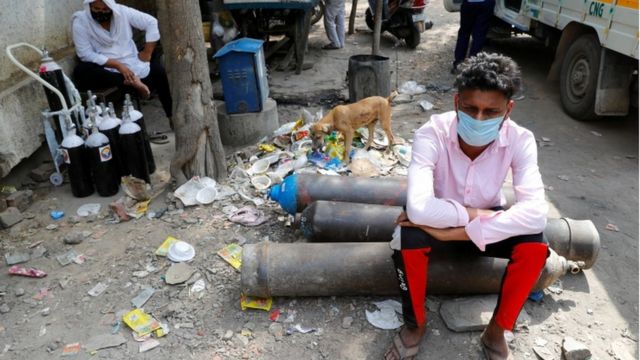
The court said, “We appeal to the central and state governments to stop such activities where there is a possibility of large number of people gathering. The government can also put a lockdown in the public interest to prevent the spread of the virus.” . “
However, the court also said that the social and economic impact of the lockdown can have an impact on marginalized communities and workers. In such a situation, if the government imposes a lockdown, then they should make arrangements in advance keeping in mind the needs of these communities.
The court also said that in any state or union territory, patients will not be denied hospitalization or giving necessary medicines if they do not have an identity card.
A three-judge bench of the court asked the central government to formulate a national policy to admit patients to hospitals within two weeks. The court said that this policy should be shared with all states and union territories, but till then no patient should be denied hospitalization or necessary medicines if they do not have a local residence certificate or identity certificate.
The bench headed by Justice DY Chandrachud also included Justices L Nageswara Rao and S Ravindra Bhatt.
The Supreme Court, in its order, admitted that the hospitalization of the patient during the second wave of the Kovid-19 epidemic has emerged as the biggest challenge before the people.
The court said, “People have been left to arrange their own essential equipment due to which they are facing a lot of difficulty. Different state and local administrations are following their different rules. “There are different standards regarding the recruitment of patients in different hospitals, which is causing chaos in the country and uncertainty is increasing. In any case there should be no further delay in this matter.”
The court ordered the central government to use its statutory power under the Disaster Management Act to form the necessary national policy, which will have to be followed.
The court said that “Having this kind of policy will ensure that the one who needs treatment does not have to return empty-handed from the hospital, that too without his mistake.”

In its order on Sunday night, the court said that the central government, along with the state governments, should create a buffer stock of oxygen so that it is not deficient in unforeseen circumstances and supplies can be ensured. Also, if necessary, oxygen can be supplied quickly so that this stock should be kept in different places.
The court said, “Emergency stock should be created for emergency use within four days and according to the amount of current allocation, that stock should be filled daily in addition to the supply of oxygen to the states.”
After the solicitor general’s assurance, the court said that the central government should ensure that the low oxygen supply to Delhi is within two days, or that Delhi should be given oxygen by midnight on the 3rd of May.
The court said that in an attempt to impose responsibility on one another for not supplying oxygen or not “the lives of common people cannot be put at risk”.
The court said in its order, “This is the time of national disaster and in such a situation it is most important to save people’s lives. It is the responsibility of both the central government and the Delhi government. Both should work together to improve the situation.”














































